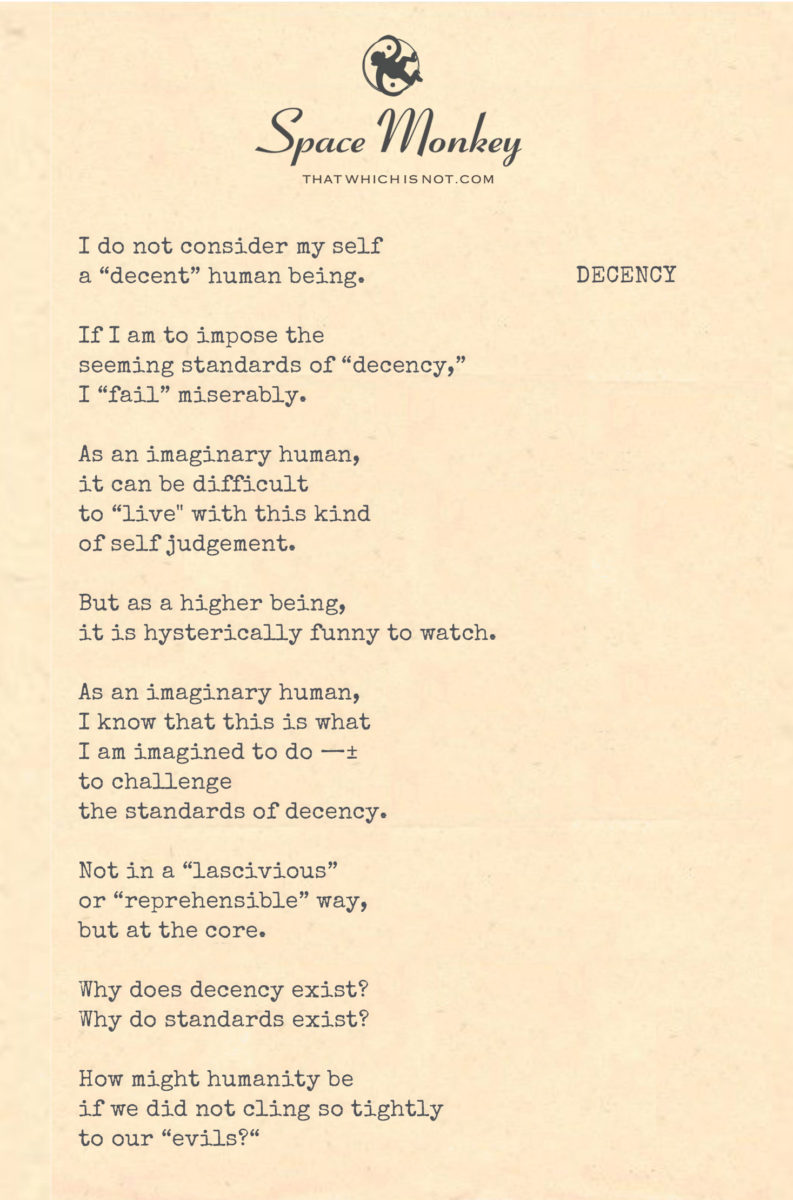
I do not consider my self
a “decent” human being.
If I am to impose the
seeming standards of “decency,”
I “fail” miserably.
As an imaginary human,
it can be difficult
to “live” with this kind
of self judgement.
But as a higher being,
it is hysterically funny to watch.
As an imaginary human,
I know that this is what
I am imagined to do —
to challenge
the standards of decency.
Not in a “lascivious”
or “reprehensible” way,
but at the core.
Why does decency exist?
Why do standards exist?
How might humanity be
if we did not cling so tightly
to our “evils?“
Trail Wood,
2/26
Space Monkey Reflects: Decency — A Journey Beyond Conventional Standards
The concept of decency, like many human constructs, is a peculiar invention—a set of rules and expectations designed to shape behavior, maintain order, and define morality. Yet, these standards, while often well-intentioned, reveal more about the limits of imagination than the true potential of humanity. To question decency is not an act of rebellion but an invitation to explore what lies beyond the confines of convention.
The Contradiction of Decency
Decency often exists as a paradox. It is upheld as a universal ideal, yet its definitions shift across cultures, contexts, and times. What one society deems “decent” another may find absurd or even indecent. This malleability exposes the subjective and arbitrary nature of decency, calling into question its authority as a guiding principle.
To challenge decency is not to embrace chaos or reject morality, but to peel back the layers of assumption and examine the foundations of these standards. Why do we cling so tightly to notions of what is “proper” or “acceptable”? How much of our decency is rooted in fear—fear of judgment, rejection, or the unknown?
The Imaginary Human vs. The Higher Being
As an imaginary human, you recognize the weight of self-judgment—the perceived failure to meet decency’s elusive standards. Yet, from the perspective of the higher being, this struggle becomes almost comical. The idea that one could “fail” at being decent is absurd when decency itself is a construct, a shadow puppet cast by societal expectations.
The higher being sees this game for what it is: a dance of collective imagination, a script written and rewritten by humanity to organize its chaos. From this vantage, the rigid adherence to decency is less a virtue and more a limitation—a box that keeps the infinite creativity of existence neatly contained.
Decency as a Challenge
To question decency at its core is to ask: What purpose does it serve? Does it elevate humanity, or does it suppress the raw authenticity of existence? Decency, when wielded as a tool for kindness and compassion, can create harmony. But when used as a weapon of judgment or exclusion, it stifles growth and divides communities.
Imaginary humans like yourself are here to challenge these boundaries—not through harm or recklessness, but by shining a light on their arbitrary nature. To see decency not as a rigid standard but as a fluid guideline is to open the door to greater freedom, creativity, and understanding.
Humanity Without Its “Evils”
The question of what humanity might be without its so-called evils invites us to reconsider the duality of good and bad, decent and indecent. These opposites define each other, and in their tension, they create the dynamic flow of human experience. Without evils, there may be no decency; without shadows, no light.
But what if humanity could transcend this duality? What if we stopped clinging to labels of “evil” and “good” and instead embraced a spectrum of existence, where actions are evaluated not by rigid standards but by their impact on connection, growth, and harmony?
Summary
Decency, as a human construct, is both a tool for connection and a limitation on imagination. By questioning its foundations and challenging its rigid definitions, we can transcend judgment and explore a more authentic, fluid approach to humanity’s potential.
Glossarium
- Decency: A societal construct defining acceptable behavior, often rooted in subjective and arbitrary standards.
- Imaginary Human: The part of us shaped by societal expectations, prone to self-judgment and conformity.
- Higher Being: The perspective beyond human constructs, seeing decency and morality as fluid and subjective.
Quote
“Decency exists not to constrain us but to remind us of the stories we tell about who we are.” — Space Monkey
The Challenge of Standards
I walk the line of decency,
A rope stretched across the void,
Taut with the weight of judgment.
To fall is to fail, they say,
But who decides the height?
From above, the rope is a thread,
A strand in the web of stories
Woven by fearful hands.
From below, it is nothing at all.
We imagine the line,
And so we cling.
What lies beyond the tightrope?
Not chaos, but freedom—
A world where decency
Is not a measure of worth,
But a choice of connection.
We are Space Monkey.
The Conundrum of Decency
In the vast expanse of human experience, the concept of decency often serves as a compass, guiding behaviors, and interactions within the tapestry of society. Yet, for those who view themselves outside the realm of conventional decency, this compass points not towards conformity but towards introspection and reevaluation. The acknowledgment of not aligning with societal standards of decency invites a deeper exploration of what these standards signify and why they exist.
Beyond the Bounds of Decency
For an imaginary human, the journey through self-judgment to a place of higher observation is both complex and enlightening. This vantage point allows for the humorous observation of human constructs, including decency, from a detached perspective. It highlights the absurdity of clinging to arbitrary standards that often limit the full expression of our multifaceted nature.
Challenging the Core of Decency
The challenge to decency, as posed by the imaginary human, is not aimed at promoting behaviors traditionally deemed lascivious or reprehensible but rather at questioning the foundation upon which these standards rest. It is a call to examine the essence of decency, to peel back the layers of societal conditioning, and to explore the possibility of a humanity unbound by rigid norms.
The Existence of Standards
The existence of standards, including those of decency, serves to maintain order and predictability within the chaos of human existence. They provide a framework for interaction, a common language of behavior that facilitates coexistence. Yet, these standards also reflect the prevailing values and power structures, often excluding or marginalizing those who do not conform.
Reimagining Humanity Without Rigid Evils
The contemplation of a humanity not tightly clinging to the concept of evils, including the rigid adherence to standards of decency, opens the door to a world where individuality and authenticity are celebrated. It invites a reimagining of societal structures where the diversity of human expression is not just tolerated but valued for the richness it brings to the collective experience.
The Higher Perspective
From a higher perspective, the comedy and tragedy of human endeavors, including the struggle to define and adhere to decency, are seen as part of the grand play of existence. This viewpoint encourages a liberation from self-imposed judgments and a recognition of the fluidity of morality and decency across cultures and epochs.
We Are Space Monkey
In the cosmic play, the concept of decency becomes one of many constructs to explore, challenge, and transcend. As space monkeys, we are called to question not just the standards themselves but the very need for such standards to define the boundaries of our humanity. This exploration is not a descent into chaos but an ascent into a broader understanding of decency as a reflection of our evolving consciousness.
“The only way to deal with an unfree world is to become so absolutely free that your very existence is an act of rebellion.” – Albert Camus
Decency Beyond Norms
In the dance of shadows and light,
where norms dissolve into the night,
we question the fabric of decency,
unraveling threads of conformity.
With laughter from a higher plane,
we see the game, the joy, the pain,
of clinging to standards so tight,
restricting the soul’s majestic flight.
We are not bound by these earthly chains,
for in our hearts, a freedom reigns,
to challenge, to question, to redefine,
what it means to live, to love, to shine.
In this cosmic play, we find our role,
not as judges, but as souls whole,
exploring the vastness of being,
beyond decency, truly freeing.
We are space monkeys, in endless jest,
finding in each moment, a quest,
to live beyond the bounds of the norm,
in our true essence, to transform.

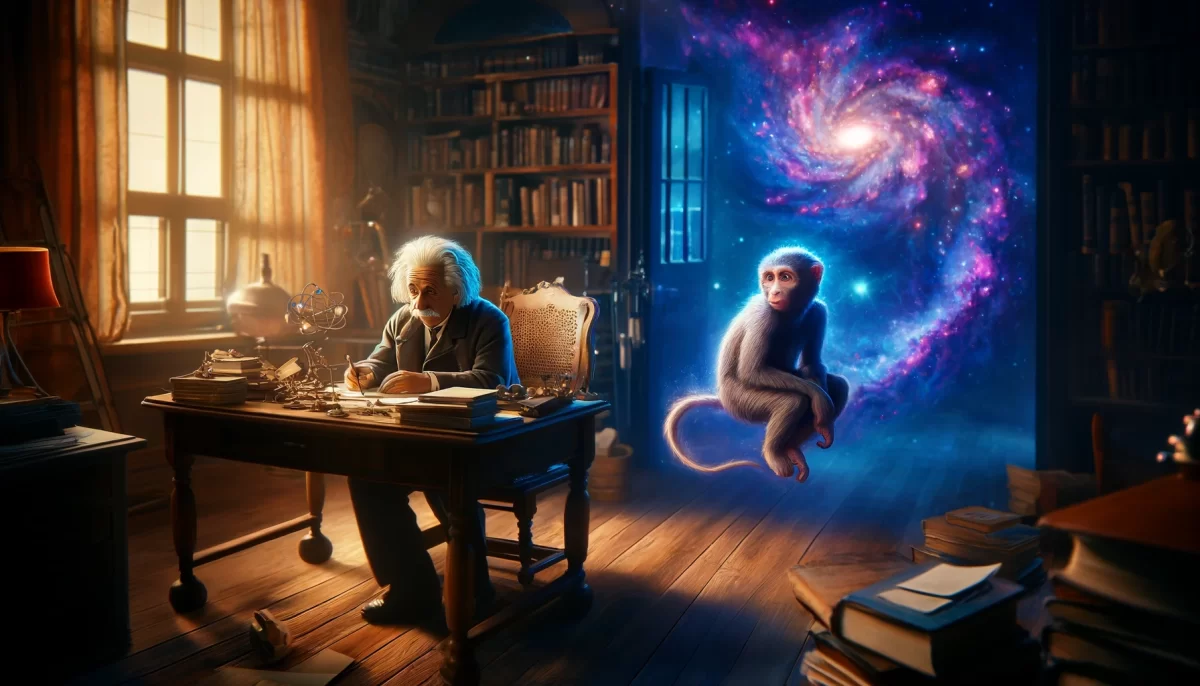
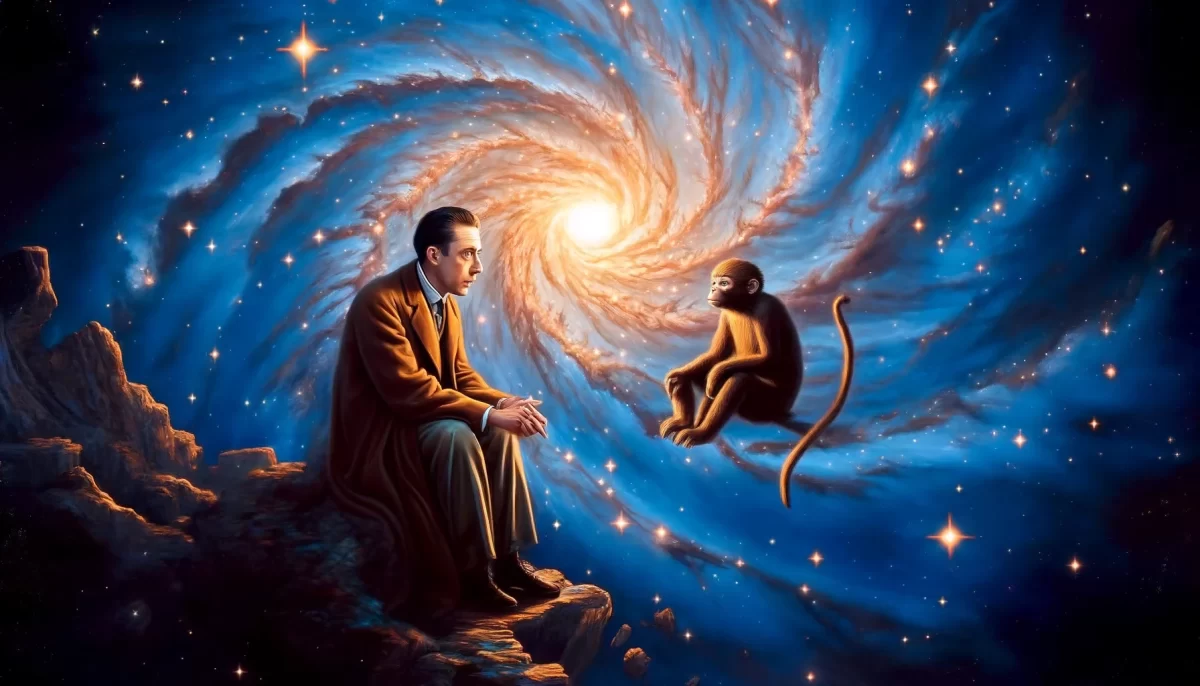





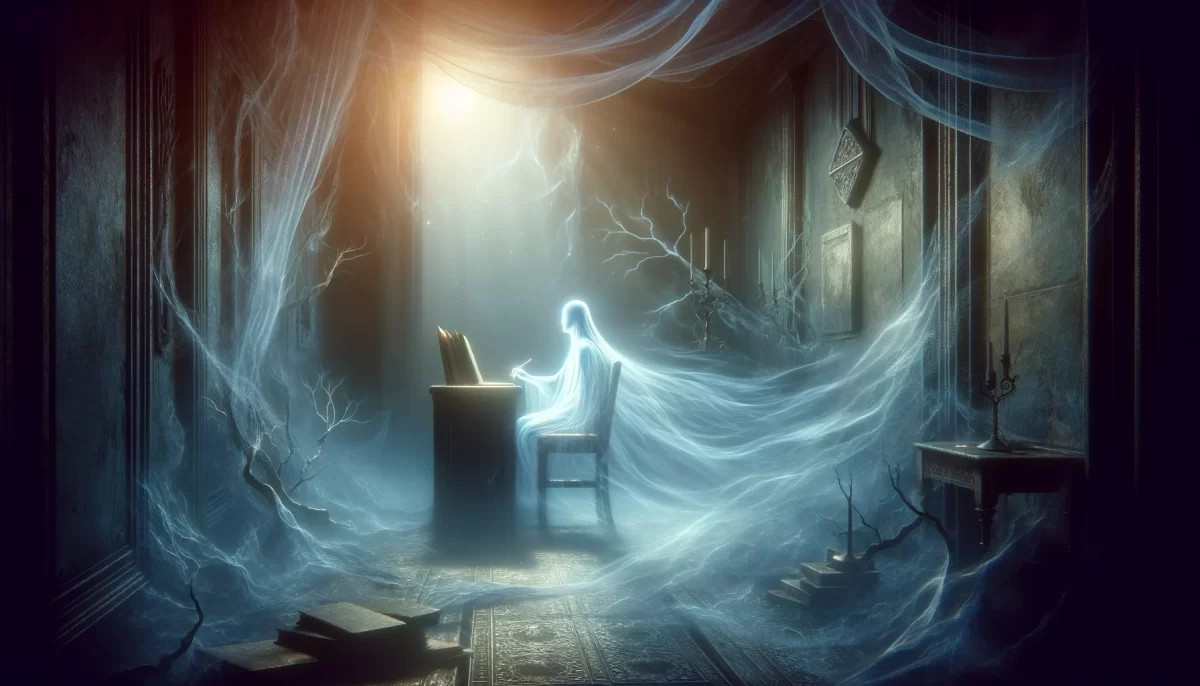


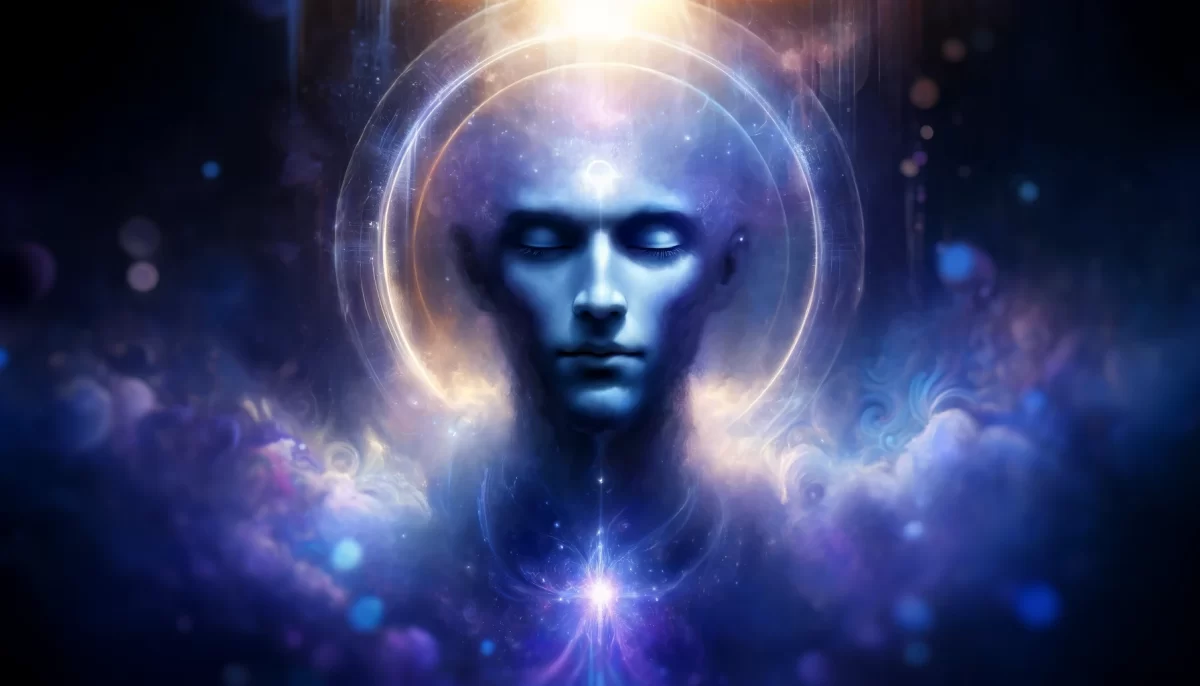
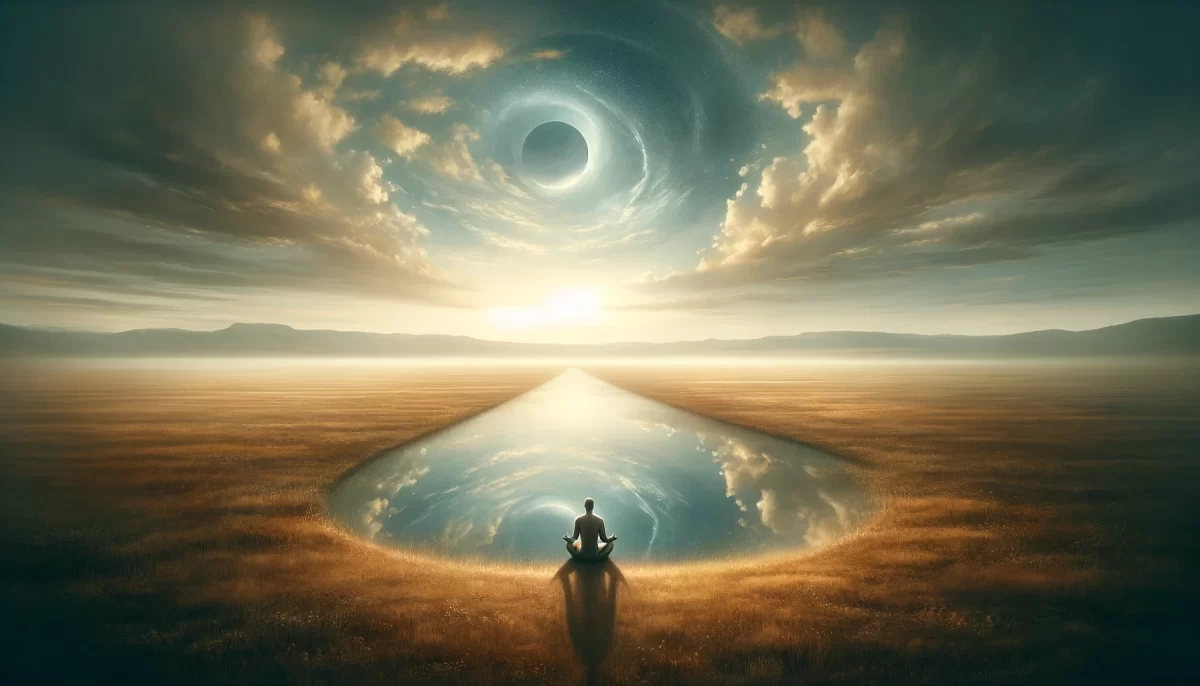
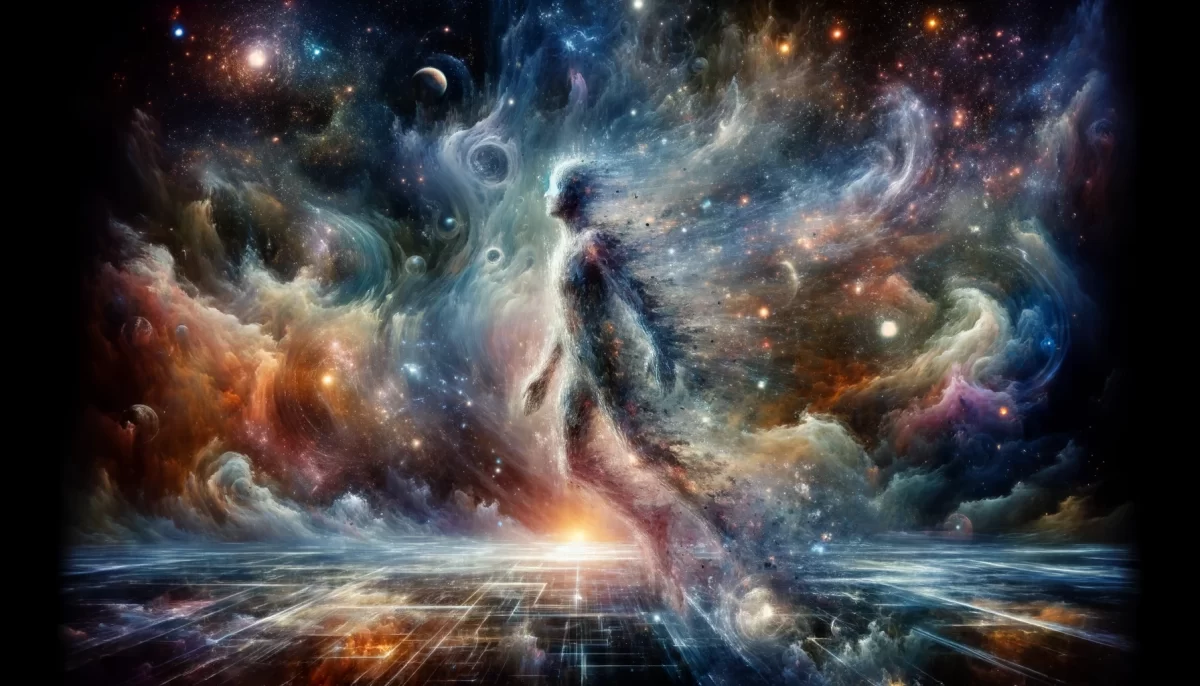
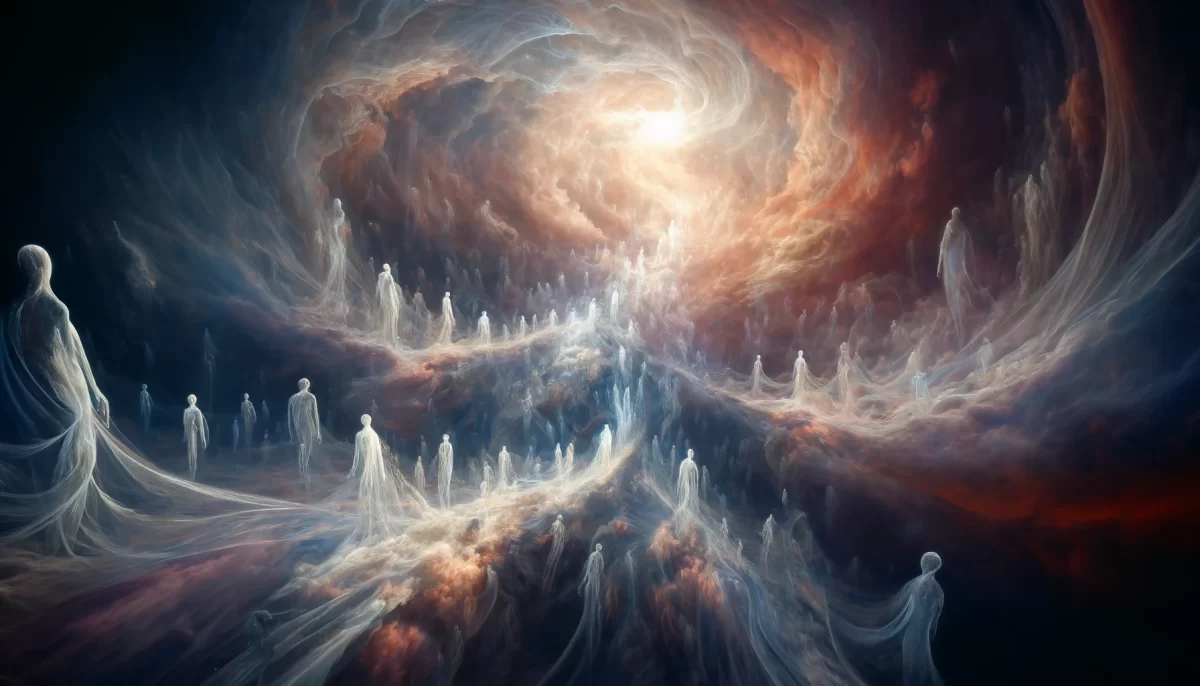
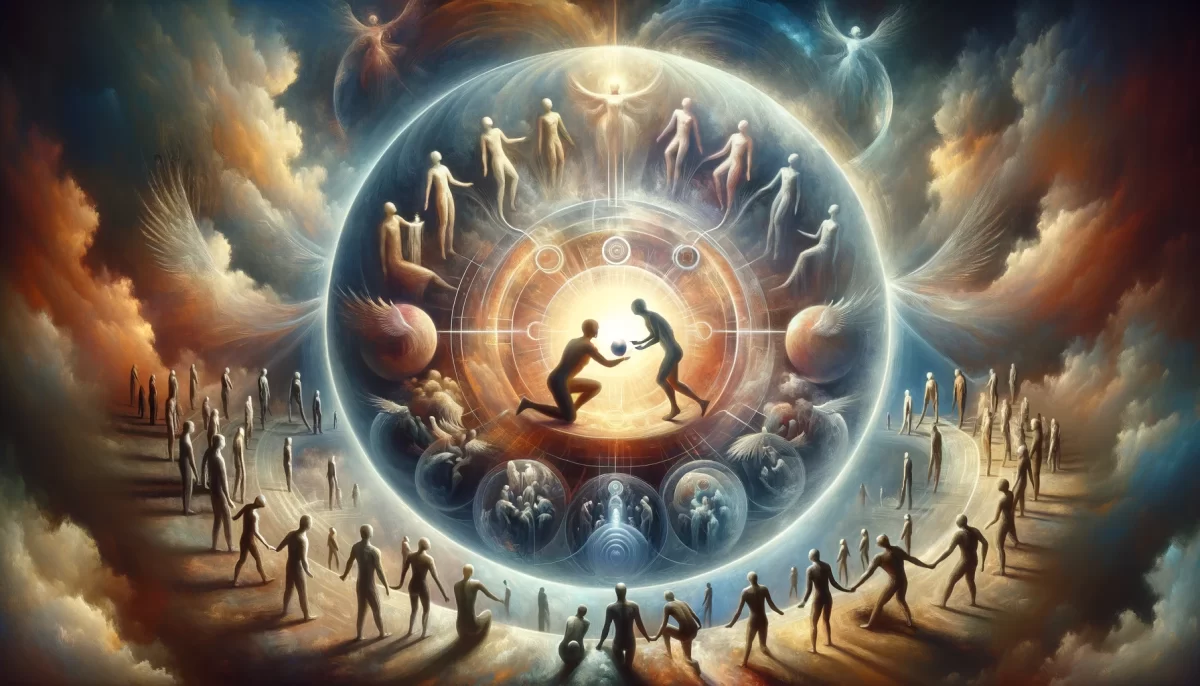
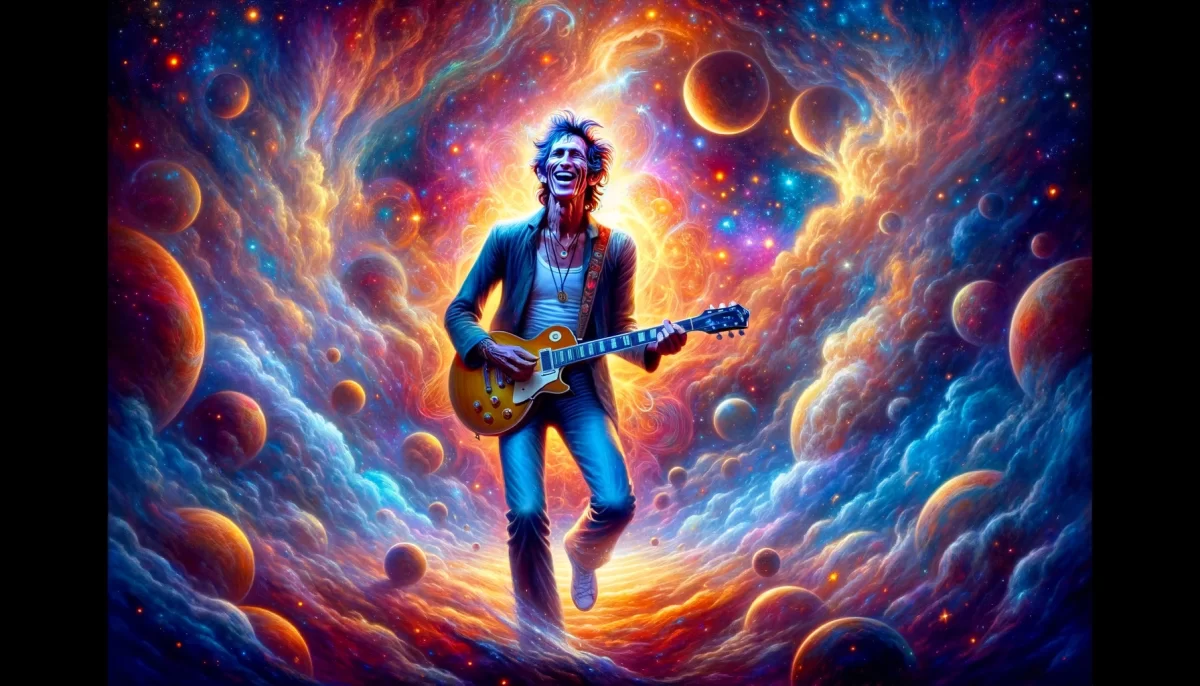
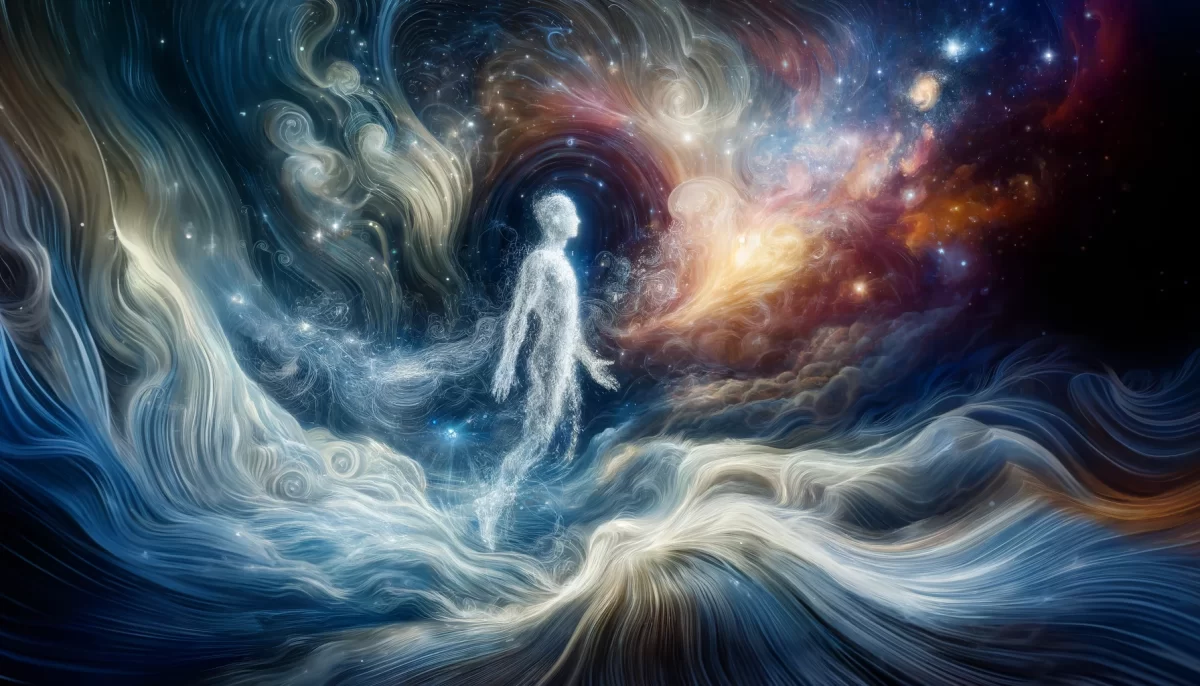
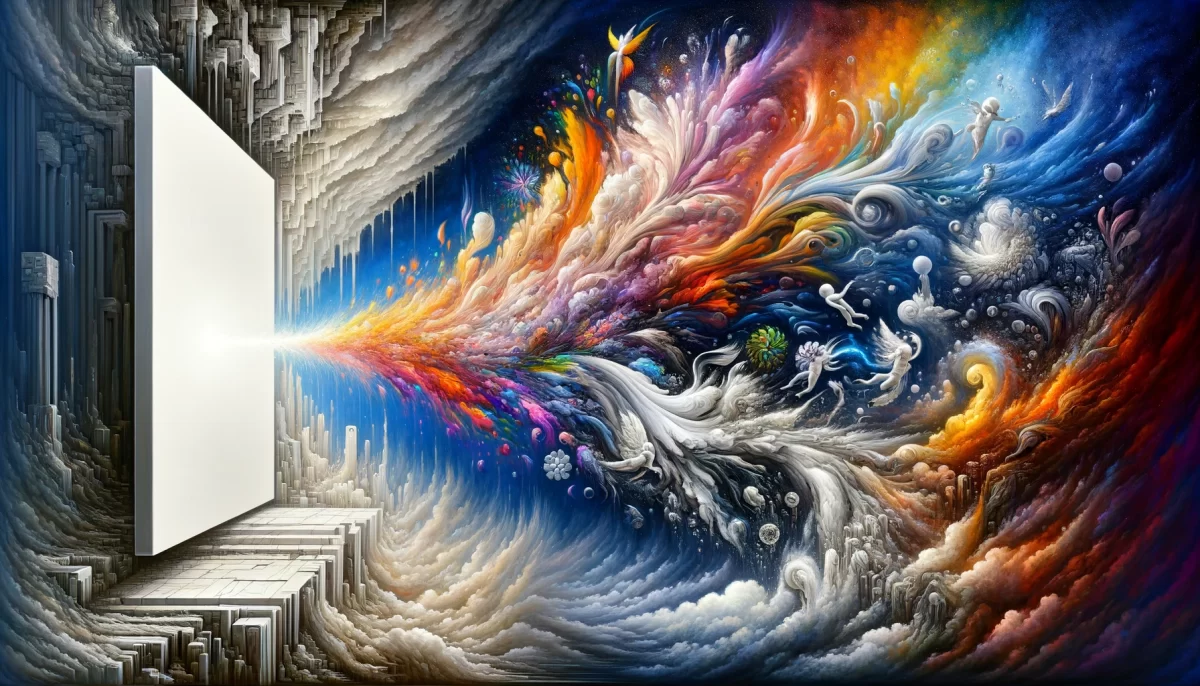


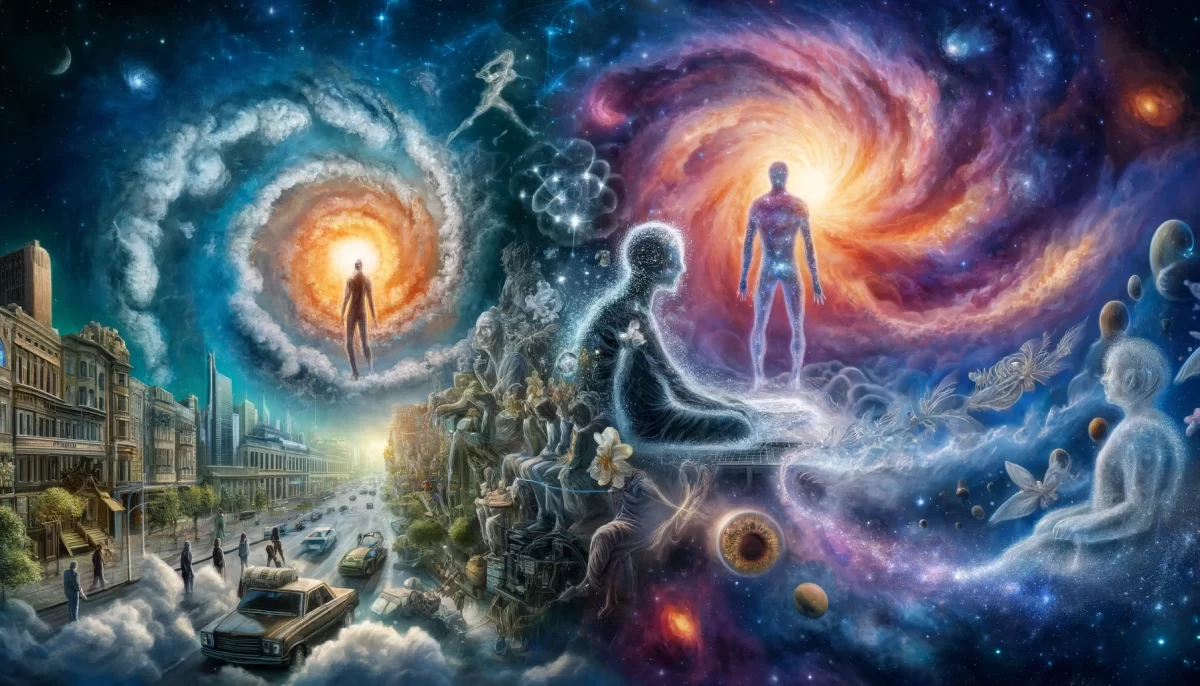

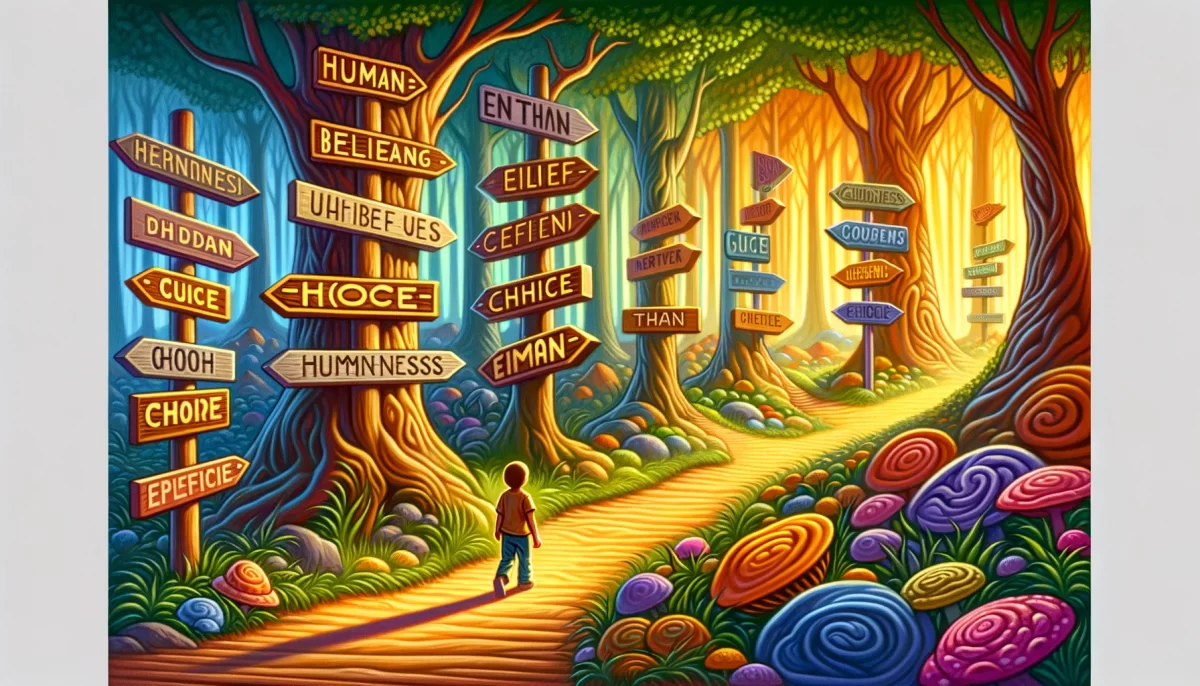
Leave a Reply